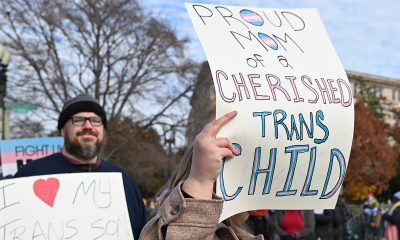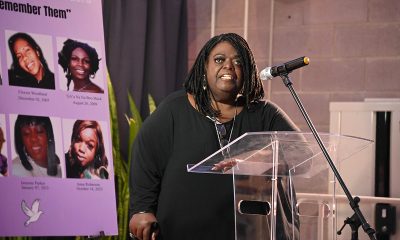homepage news
Remembering trans lives lost
21 trans people have been murdered so far in 2015; here are their stories
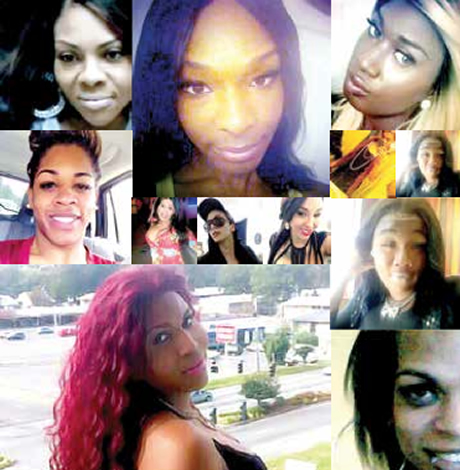
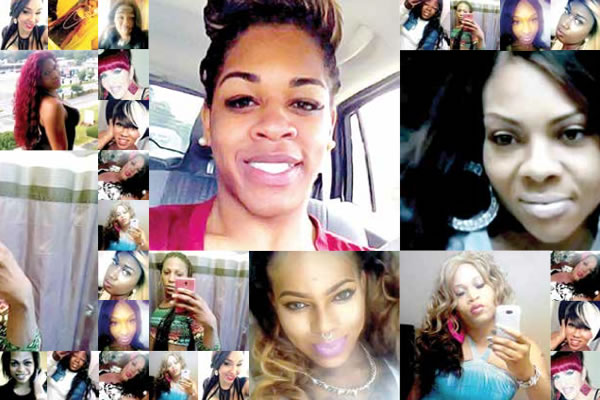
So far in 2015, 21 transgender people have been killed in violent attacks, according to the National Coalition of Anti-Violence Programs.
Trans Day of Remembrance
Friday, Nov. 20
Metropolitan Community Church
474 Ridge St., N.W.
6-8 p.m.
So far in 2015, 21 transgender people have been killed in violent attacks, according to the National Coalition of Anti-Violence Programs.
In recognition of the Transgender Day of Remembrance on Nov. 20, the Blade’s reporting staff reached out to police and public officials involved in investigating and prosecuting those cases. Updates on each case follow.
(They were reported by Lou Chibbaro Jr., Joey DiGuglielmo, Chris Johnson, Michael K. Lavers, Mariah Cooper and Michael Key.)
Zella Ziona, 21
Gaithersburg, Md.

Zella Ziona (Photo courtesy of Twitter)
Zella Ziona, 21, was shot multiple times in the head and body in an alley behind a shopping center in Gaithersburg, Md., in the early evening of Oct. 15, and was pronounced dead at a nearby hospital at 8:12 p.m. that same day, according to a police report.
The following day police charged Rico Hector LeBlond, 20, with first-degree murder in connection with Ziona’s death. He has been held without bond since the time of his arrest on Oct. 16.
On Nov. 12 a Montgomery County Grand Jury indicted LeBlond on a murder charge, saying he “did feloniously and willfully and deliberately and with premeditation kill and murder” Ziona. The indictment doesn’t classify the murder as a hate crime.
Montgomery County State’s Attorney John McCarthy, the lead prosecutor in the case, told the Washington Blade that his office and police investigators looked carefully into whether to list the incident as a hate crime, and initially could not find sufficient evidence to do so.
McCarthy said investigators discovered that Ziona and LeBlond had known each other and had been friends since the two were in middle school. He said the police investigation also found that the two appeared to have been in a romantic relationship sometime after Ziona began transitioning.
The police charging document filed in court says witnesses told police that Ziona and LeBlond had been having a “simmering dispute” a short time before the murder. The dispute started, the document says, when Ziona approached LeBlond and a group of his male friends at another shopping center while “acting flamboyantly towards LeBlond and greatly embarrassed him in front of his peers.”
The charging document says that upon learning that Ziona was at the Montgomery Village Crossing shopping center on Oct. 15, LeBlond, with the help of other young men with him, lured Ziona to the alley behind the shopping center. Witnesses told police that after initially firing a shot that hit Ziona, LeBlond allegedly “walked over to her, stood over her, and fired more rounds into her body.”
Much of the incident, except for the shooting, was captured on surveillance video from the shopping center, the charging document says. It says Ziona suffered gunshot wounds to the head and groin area.
A trial date for LeBlond had not been scheduled as of Nov. 16. —LC
Papi Edwards, 20
Louisville, Ky.
Papi Edwards, 20, whose friends have said identified as a transgender woman, was shot to death at a Louisville, Ky., hotel on Jan. 9, by a suspect who reportedly met her through an online site, according to one of her friends.
The friend, whose videotaped interview with police became part of the public court records, said she and two other transgender friends who were with Edwards at the Fern Valley Hotel at the time of the shooting, believe suspect Henry Gleaves, 20, shot Edwards because she was transgender.
Multiple news media outlets have reported that the friend, who has asked to be identified only by the name Tiffany, said that Gleaves became angry shortly after arriving at the hotel room where Edwards and the three other trans women were staying, when Edwards informed him that she was transgender.
Buzzfeed News, which was one of the first news outlets to view the police videotaped interview of Tiffany, reported that Tiffany said Edwards tried to avoid potentially surprising Gleaves by identifying herself as a trans person.
“The dude said, ‘What the fuck?’ and he left,” Buzzfeed quoted Tiffany as saying.
A police charging document filed in Jefferson County Circuit Court in Louisville says witnesses told police that Edwards and the three others with her walked out of the hotel into a parking lot where they planned to leave to buy cigarettes. But Edwards walked back into the hotel to get something she forgot to bring with her, and minutes later a suspect later identified as Gleaves fatally shot her, police have said.
“Pepi got shot because she was a transgender female,” Buzzfeed quoted Tiffany as saying. “That is exactly why she was killed – because of gender identity.”
But shortly after Gleaves’ arrest three days later on a charge of murder, a Louisville police spokesperson said police considered claims about Edwards’ gender identity to be irrelevant to the case, and that police would continue to identify Edwards as a male using her birth name Sherman Edwards, which is listed on all police and court records.
Assistant Commonwealth’s Attorney John Balenovich, the lead prosecutor in the case, told the Washington Blade this week that Edwards clearly presented herself as a female and that his office would be bringing up issues related to her gender identity at Gleaves’ trail, which is scheduled to begin April 5, 2016.
Balenovich said he presented the case before a grand jury in January and an indictment on murder was quickly obtained. He said that in July, after his office obtained additional information that Gleaves made several phone calls from jail asking friends to destroy evidence, including text messages on Gleaves’ cell phone, he obtained a second indictment against Gleaves on a charge of evidence tampering.
He said he could neither confirm nor deny media reports that Edwards had arranged to meet Gleaves at the hotel to engage in sex for money, saying all relevant evidence surrounding the case would be presented at trial.
Chris Hartman, director of the Louisville-based LGBT advocacy group Fairness Campaign, said the group expressed strong concern to Louisville police about the initial statement by the police spokesperson that Edwards’ gender identity was not relevant to the case. —LC
Ty Underwood, 24
Tyler, Texas
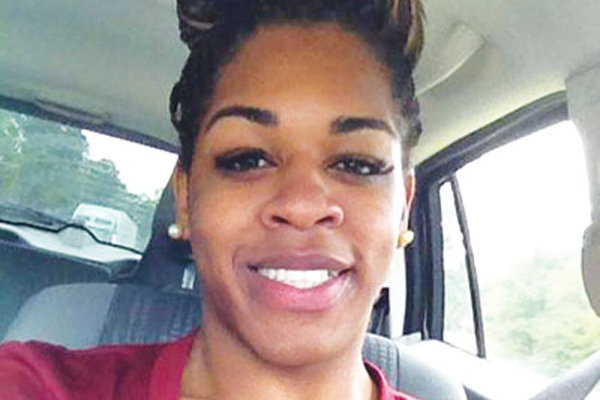
Ty Underwood (Photo courtesy Facebook)
Ty Underwood, 24, a transgender woman, was found shot to death inside a red Toyota Camry she had been driving shortly after 2 a.m. on Jan. 26 in a residential neighborhood in Tyler, Texas, according to information released by Tyler police.
Police said they were called to the scene by nearby residents, some of whom saw the car had crashed near a utility pole and others reported hearing gunshots. Police said Underwood had been shot several times, which caused her to lose control of the vehicle. She was declared dead at the scene.
Less than a month later police announced they had arrested a football player at Texas College named Carlton Ray Champion Jr., 21, in connection with Underwood’s murder. A police arrest affidavit filed in court says police learned through their investigation that Underwood and Champion had been dating for several weeks prior to the murder and the two were believed to have met through a mobile app called “Kik.”
The affidavit says one of the detectives interviewed Champion’s father, who reportedly said his son initially thought Underwood was a female and was surprised and upset when he learned she was transgender.
But Tyler police spokesperson Officer Don Martin told news media outlets that police did not believe the murder was a hate crime after learning through their investigation that Champion reportedly knew that Underwood was transgender while continuing to see her.
The arrest affidavit states that police obtained the content of text messages and possible online communication between Underwood and Champion after confiscating Champion’s tablet computer.
“After reading the text between Champion Jr. and Underwood, it was clear that the two have had sexual relations with each other,” a detective stated in the affidavit.
The affidavit says the shooting took place shortly after Underwood sent Champion a message saying she no longer wanted to see him, suggesting that he was seeing someone else and felt he was treating her badly. He replied, according to the affidavit that “this ain’t done” and reportedly persuaded Underwood to meet up with him.
Police have said ballistics evidence indicates that shots may have been fired from inside the car as well as from the outside.
Champion has pleaded not guilty to the first-degree murder charge filed against him. A trial date had not been set as of this week. —LC
Yazmin Vash Payne, 33
Los Angeles
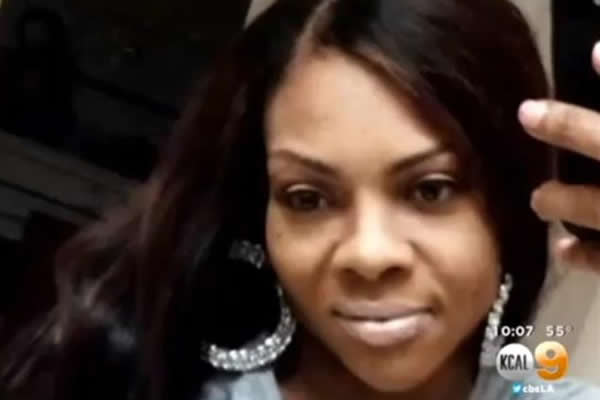
Yazmin Vash Payne (Image via CBS LA)
Los Angeles police reported that city firefighters found transgender woman Yazmin Vash Payne, 33, stabbed multiple times in the bedroom of her apartment in the city’s Van Nuys neighborhood after the room had been set on fire about 5 a.m. on Jan. 31.
Paramedics pronounced Payne dead at the scene after firefighters quickly extinguished the fire.
The following day a man police identified as Payne’s boyfriend, Ezekiel Dear, 25, turned himself in at a local police station while accompanied by a pastor and reportedly admitted to having stabbed Payne.
Police have charged Dear with felony murder and the commission of arson at an inhabited structure, according to charging documents filed in Los Angeles County Superior Court. He has been held on $1 million bail since the time of his arrest on Feb. 1. Court records show a trial date has yet to be scheduled.
KABC-TV News reported that neighbors said Payne and Dear had moved into the apartment a short time before the stabbing and that Payne was open about being transgender.
A spokesperson for the Los Angeles County District Attorney’s Office, which is prosecuting the case, said she was not at liberty to disclose whether investigators have established a motive for the murder. The case has not been listed as a hate crime. —LC
Taja Gabrielle De Jesus, 33
San Francisco

Taja Gabrielle de Jesus (Photo courtesy Facebook)
San Francisco police reported that Taja Gabrielle DeJesus, a 36-year-old transgender woman, was found stabbed to death in a stairwell in the city’s Bayview District about 9 a.m. on Feb. 1.
A San Francisco police spokesperson didn’t immediately respond to a Blade request for further information on the status of the case. But, according to the San Francisco Chronicle, police on Feb. 6 said they identified a suspect in the case but declined to provide further details other than to say they did not believe the murder was a hate crime.
Around that same time, the San Francisco Weekly reported that police sources identified the suspect as James Hayes, 49, who was found dead in an apparent suicide. San Francisco Weekly reported that police discovered him hanging by his neck from a fence behind a warehouse a half-mile from where DeJesus’s body was found.
Authorities have yet to disclose whether they have learned of a motive for the murder and what, if any, relationship DeJesus may have had with Hayes.
Pamela DeJesus, the victim’s mother, told the San Francisco Chronicle that her daughter was from San Jose and moved to San Francisco because it would provide a more supportive environment for transgender people. Pamela DeJesus said Taja Gabrielle was active in her Bayview church and volunteered for a local food pantry.
“Taja was beautiful inside and out,” the mother said. “She was the rock for our family.” —LC
Elisha Walker, 20
Smithfield, N.C.
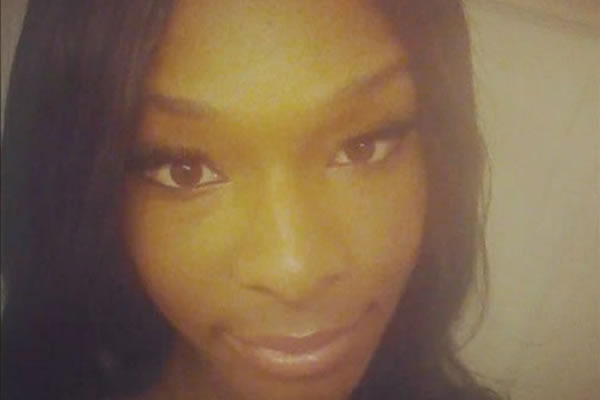
Elisha Walker (Photo courtesy Facebook)
In August, it was reported that the remains of a Rowan County, N.C., woman were found in a “crude” grave in a wooded area. Elisha Walker had been reported missing in November 2014. Local media outlets said Walker was “reported to live an alternative lifestyle of a non-heterosexual male.”
Angel Dejesus Arias, 23, was charged with murder and felony larceny of a motor vehicle following the discovery. Arias was already in custody on an unrelated drug charge and is being held without bond, according to WXII12, a regional news outlet. Arias is a member of the Latin Kings street gang, the article said.
Lt. Chad Moose of the Rowan County, N.C., Sheriff’s Office said it may take about two years for the trial to start.
“We’ll have a trial date but nothing is set up yet,” Moose told the Blade last week. “He’s being held without bond.”
Moose said some investigative work continues.
“We’re still doing some follow-up stuff, but nothing major,” he said. “Phone records and stuff like that.”
The case has not been classified as a hate crime. —JD
Tamara Dominguez, 36
Kansas City, Mo.

Tamara Dominguez (Photo courtesy Facebook)
Tamara Dominguez was hit by a truck then run over several times on Aug. 15 in Kansas City, Mo., according to police.
Her family was told by police her car was found near Independence Avenue, according to KCTV News. They told reporters they don’t know why she was there or whom she may have been with. Witnesses reported seeing an argument but details are scant, the article said.
The case has not been classified as a hate crime.
Sgt. K. Thompson of the Kansas City Police told the Blade there are no updates.
“Presently we have not been advised of any updates in this case nor have we been advised of any arrests,” she said. “We’re still urging the community to reach out to our hotline on this.” —JD
Penny Proud, 21
New Orleans
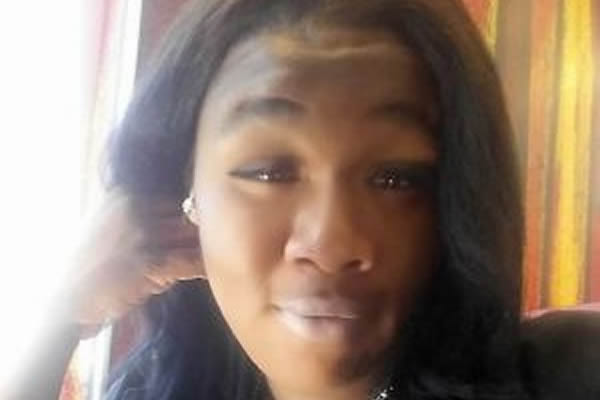
Penny Proud (Photo courtesy Facebook)
Penny Proud was fatally shot multiple times about 1:30 a.m. on Feb. 10 near the intersection of Ursulines Avenue and North Claiborne Avenue in Treme, a New Orleans neighborhood.
The transgender woman was pronounced dead at the scene according to the New Orleans Police Department.
The investigation remains ongoing nine months later, police told the Washington Blade.
“It’s still open but we haven’t gotten anything lately, we haven’t gotten any leads,” said Officer Frank Robertson, an LGBT liaison officer of the department. “It all depends on when we get leads. Some cases can go on for years. I try to get all the LGBT stuff and this case is still open.”
The case has not been classified as a hate crime. —JD
Kandis Capri, 35
Phoenix
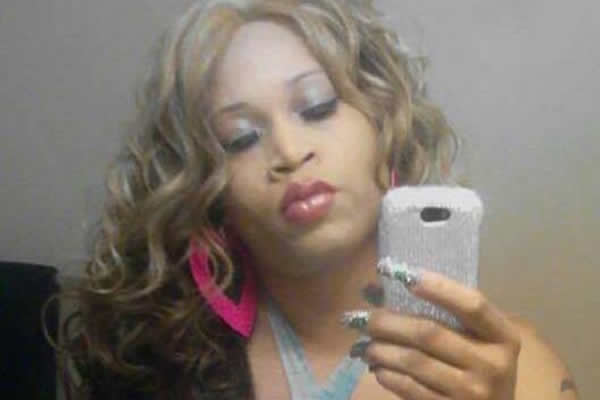
Kandis Capri (Photo courtesy Facebook)
Kandis Capri, a black transgender woman, was shot and killed at an apartment complex near 43rd and Thomas Road in Phoenix on Aug. 11, according to ABC 15, a regional affiliate.
Last month, police released video taken at a nearby convenience store that shows Capri walking with the “investigative lead” before the shooting. Capri was found in the parking lot of the La Reserve Apartments with multiple gunshot wounds. She was transported to the hospital and pronounced dead. The suspect was seen leaving the area on foot, police told ABC 15.
No mention was made in local media reports of the case being designated as a hate crime. Washington Blade calls to Phoenix Police were not returned. —JD
Lamia Beard, 30
Norfolk, Va.
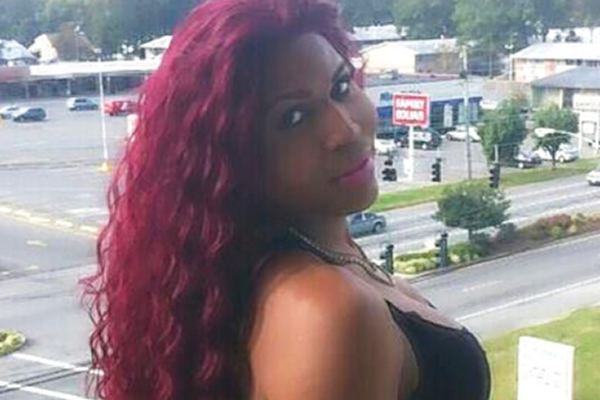
Lamia Beard (Photo courtesy Facebook)
The Norfolk Police Department shortly before 4 a.m. on Jan. 17 received a 911 call that said Lamia Beard had been shot on East 25th Street in the city’s Park Place neighborhood. She died from her injuries several hours later at a local hospital.
Officer Daniel Hudson of the Norfolk Police Department told the Washington Blade earlier this month that no arrests have been made in Beard’s case. He asked anybody with information to call 1-888-LOCKUUP.
Hudson said there is currently “no concrete evidence to classify” Beard’s murder as a hate crime.
Virginia’s hate crimes law does not include gender identity. —ML
Jessica Hernandez, 17
Denver
Two Denver police officers on Jan. 26 shot Jessica Hernandez to death as she drove a stolen car through an alley.
The National LGBTQ Task Force’s annual Creating Change Conference took place in Denver less than two weeks after Hernandez’s death. Mayor Michael Hancock cancelled his speech to the gathering after LGBT rights advocates stormed the stage to protest the shooting.
District Attorney Mitchell Morrissey in June declined to file charges against the two officers who shot Hernandez.
“The facts show this was a defensive shooting by both officers,” wrote Morrissey in a letter to Denver Police Chief Robert White. “That is, their decisions to shoot Ms. Hernandez were justifiable in light of the manner in which she drove the car in close and dangerous proximity to them.”
Hernandez’s family had previously called for a federal investigation into the shooting. —ML
Kristina Gomez Reinwald, 46
Miami
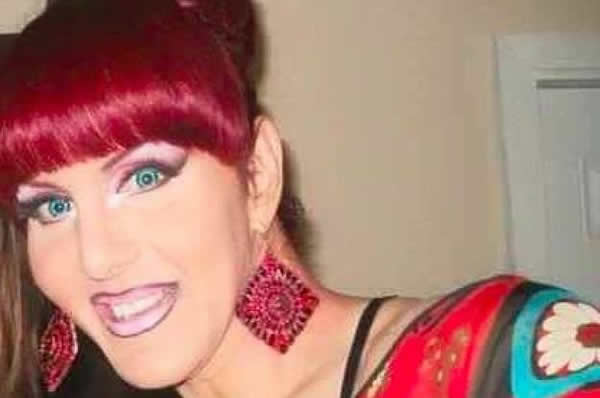
Kristina Gomez Reinwald (Photo courtesy Facebook)
Kristina Gomez Reinwald was found stabbed to death on Feb. 15 in the house on S.W. 58th Court that she shared with her stepfather and brother.
Gomez — who was also known as Kristina Grant Infinity — was a well-known performer in Miami Beach.
The Miami-Dade Police Department originally ruled Gomez’s death as a suicide, but media reports indicate it was a homicide.
The Miami-Dade Police Department did not return the Washington Blade’s repeated requests for comment on the status of the investigation into Gomez’s death. Anyone with information can call Miami-Dade Crime Stoppers at 305-471-TIPS.
Florida’s hate crimes law does not include gender identity. —ML
Londyn Chanel, 21
Philadelphia
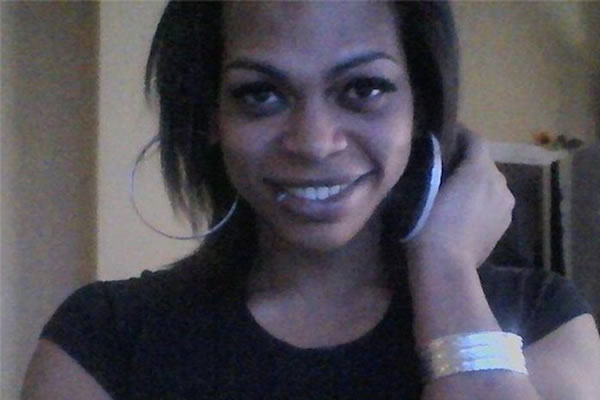
London Kiki Chanel (Photo courtesy Facebook)
Londyn Chanel was stabbed to death outside an abandoned house in North Philadelphia on May 18.
Police say that Raheam Felton — who lived in the abandoned house with Chanel and two other trans women — stabbed her to death during what they described as a domestic dispute.
Felton has been charged with murder and possession of an instrument of crime in connection with Chanel’s death. Kevin Bethel of the Philadelphia Police Department told the Philadelphia Gay News that Felton did not kill Chanel because of her gender identity.
A spokesperson for the Philadelphia Police Department told the Blade last week that the case is “going through the legal system.” —ML
Mercedes Williamson, 17
George County, Miss.
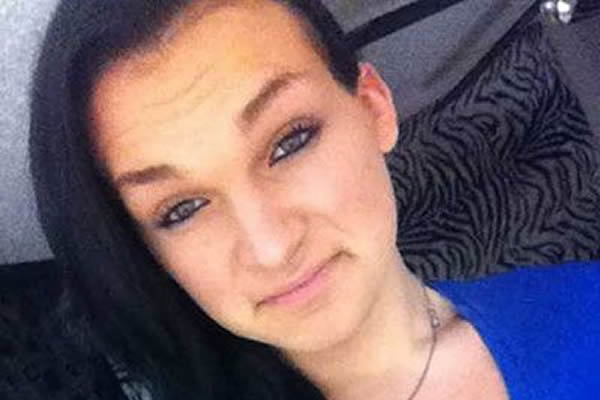
Mercedes Williamson (Photo courtesy Facebook)
Mississippi prosecutors say a self-professed gang member killed Mercedes Williamson and dumped her body behind his father’s home.
Authorities found Williamson’s partially decomposed body near Lucedale, Miss., on June 2. A spokesperson with the George County Sheriff’s Office confirmed to the Washington Blade that Josh Brandon Vallum has been indicted on murder charges in the case.
“The case has been turned over to the district attorney’s office in George County,” said the spokesperson.
Williamson lived in Theodore, Ala., which is roughly 50 miles southeast of where her body was found.
Mississippi’s hate crimes law does not include gender identity. —ML
Shade Schuler, 22
Dallas
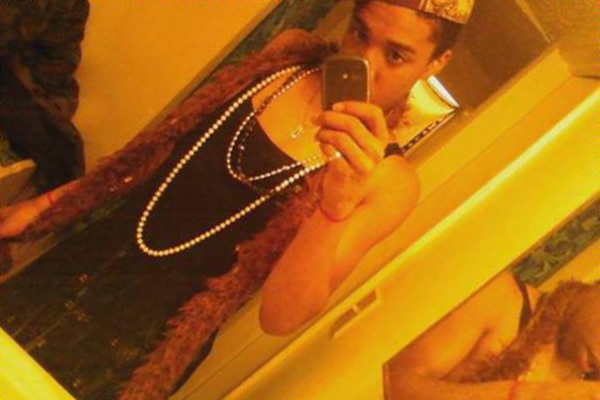
Shade Schuler (Photo courtesy Facebook)
Shade Schuler, 22, was found murdered on July 29 in a field near the medical district in Dallas. Not much is known about the offense. The Dallas Police Department had no updates and the case remains open. Anyone with information is asked to contact Detective Chaney with the Dallas Police Department Homicide Unit at 214-671-3650. —CJ
Amber Monroe, 20
Detroit
Amber Monroe, 20, was found on Aug. 8 shot to death in Detroit. According to a local media report, she was shot while coming out of a vehicle and pronounced dead at the hospital. No additional information was known at the time of her death. The Detroit Police Department didn’t respond to Blade inquiries about the status of the case. —CJ
Ashton O’Hara, 25
Detroit
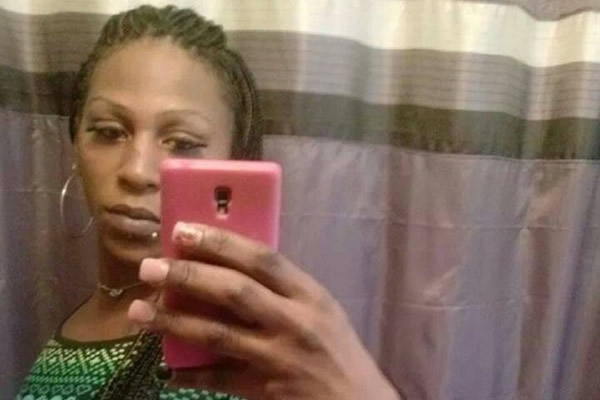
Ashton O’Hara (Photo courtesy Facebook)
Ashton O’Hara, 25, was found murdered on July 14 in a field in Detroit. According to a local media report, no information was known about the motive for O’Hara’s murder. The Detroit Police Department didn’t respond to Blade inquiries about the status of the case. —CJ
India Clark, 25
Tampa, Fla.
India Clark was found dead from a gunshot wound to her head on July 21 in a park area of the University Area Community Center in Tampa, Fla. Days later on July 29, detectives arrested Keith Lamayne Gaillard for the killing and charged him with first-degree murder. According to police, the two had a “personal relationship.” —CJ
K.C. Haggard, 66
Fresno, Calif.
K.C. Haggard, 66, was stabbed to death in the street in Fresno, Calif., on July 23. The driver of an SUV summoned K.C. Haggard over before fatally stabbing her in the neck from his car. Haggard remained on the street for 20 minutes before a passerby called paramedics. After being rushed to the Community Regional Medical Center, she was pronounced dead. Local transgender activists are calling for this homicide to be investigated as a hate crime. The case remains open. Police are asking individuals with information to call Lt. Burke Farrah at 559-621-2414. —CJ
Jasmine Collins, 32
Kansas City, Mo.
Jasmine Collins, 32, was stabbed to death outside her apartment complex in Kansas City, Mo., on June 23.
As reported by the Guardian, court documents state that Collins, who was identified as male in an initial homicide incident report, went to Tia Townsel, an acquaintance from her complex, for a haircut. They started arguing over a pair of shoes and a physical altercation began in the apartment and continued into the parking lot. Collins hit Townsel over the head with a vodka bottle. Then Townsel retrieved a knife from her apartment and proceeded to stab Collins, according to court documents.
Townsel was charged with second-degree murder and armed criminal action. The detective on the case did not respond to Blade inquiries this week. —MC
Keyshia Blige, 33
Aurora, Ill.
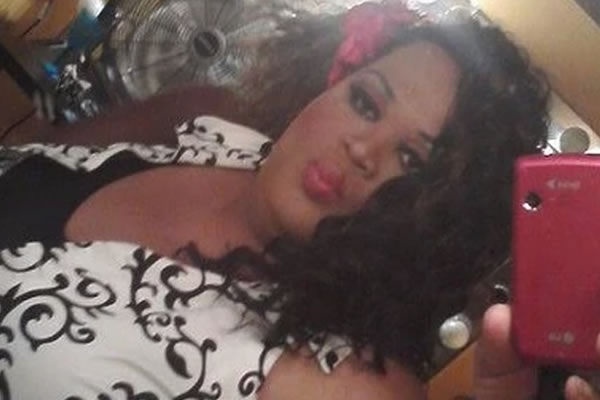
Keyshia Blige (Photo courtesy Twitter)
Keyshia Blige, 33, was shot while driving a car with a friend in the passenger seat, in Aurora, Ill., on March 7.
Aurora Police told media outlets that they did not believe the murder was a hate crime but they were working on other theories. So far, no suspects have been arrested. Police told the Blade this week that there are no updates on the case.
Initial reports reported Blige’s gender as male. News of Blige’s murder became more known in August, after more reports revealed Blige was a transgender woman.
For tips on this case, call 630-892-1000. —MC
homepage news
Honoring the legacy of New Orleans’ 1973 UpStairs Lounge fire
Why the arson attack that killed 32 gay men still resonates 50 years later

On June 23 of last year, I held the microphone as a gay man in the New Orleans City Council Chamber and related a lost piece of queer history to the seven council members. I told this story to disabuse all New Orleanians of the notion that silence and accommodation, in the face of institutional and official failures, are a path to healing.
The story I related to them began on a typical Sunday night at a second-story bar on the fringe of New Orleans’ French Quarter in 1973, where working-class men would gather around a white baby grand piano and belt out the lyrics to a song that was the anthem of their hidden community, “United We Stand” by the Brotherhood of Man.
“United we stand,” the men would sing together, “divided we fall” — the words epitomizing the ethos of their beloved UpStairs Lounge bar, an egalitarian free space that served as a forerunner to today’s queer safe havens.
Around that piano in the 1970s Deep South, gays and lesbians, white and Black queens, Christians and non-Christians, and even early gender minorities could cast aside the racism, sexism, and homophobia of the times to find acceptance and companionship for a moment.
For regulars, the UpStairs Lounge was a miracle, a small pocket of acceptance in a broader world where their very identities were illegal.
On the Sunday night of June 24, 1973, their voices were silenced in a murderous act of arson that claimed 32 lives and still stands as the deadliest fire in New Orleans history — and the worst mass killing of gays in 20th century America.
As 13 fire companies struggled to douse the inferno, police refused to question the chief suspect, even though gay witnesses identified and brought the soot-covered man to officers idly standing by. This suspect, an internally conflicted gay-for-pay sex worker named Rodger Dale Nunez, had been ejected from the UpStairs Lounge screaming the word “burn” minutes before, but New Orleans police rebuffed the testimony of fire survivors on the street and allowed Nunez to disappear.
As the fire raged, police denigrated the deceased to reporters on the street: “Some thieves hung out there, and you know this was a queer bar.”
For days afterward, the carnage met with official silence. With no local gay political leaders willing to step forward, national Gay Liberation-era figures like Rev. Troy Perry of the Metropolitan Community Church flew in to “help our bereaved brothers and sisters” — and shatter officialdom’s code of silence.
Perry broke local taboos by holding a press conference as an openly gay man. “It’s high time that you people, in New Orleans, Louisiana, got the message and joined the rest of the Union,” Perry said.
Two days later, on June 26, 1973, as families hesitated to step forward to identify their kin in the morgue, UpStairs Lounge owner Phil Esteve stood in his badly charred bar, the air still foul with death. He rebuffed attempts by Perry to turn the fire into a call for visibility and progress for homosexuals.
“This fire had very little to do with the gay movement or with anything gay,” Esteve told a reporter from The Philadelphia Inquirer. “I do not want my bar or this tragedy to be used to further any of their causes.”
Conspicuously, no photos of Esteve appeared in coverage of the UpStairs Lounge fire or its aftermath — and the bar owner also remained silent as he witnessed police looting the ashes of his business.
“Phil said the cash register, juke box, cigarette machine and some wallets had money removed,” recounted Esteve’s friend Bob McAnear, a former U.S. Customs officer. “Phil wouldn’t report it because, if he did, police would never allow him to operate a bar in New Orleans again.”
The next day, gay bar owners, incensed at declining gay bar traffic amid an atmosphere of anxiety, confronted Perry at a clandestine meeting. “How dare you hold your damn news conferences!” one business owner shouted.
Ignoring calls for gay self-censorship, Perry held a 250-person memorial for the fire victims the following Sunday, July 1, culminating in mourners defiantly marching out the front door of a French Quarter church into waiting news cameras. “Reverend Troy Perry awoke several sleeping giants, me being one of them,” recalled Charlene Schneider, a lesbian activist who walked out of that front door with Perry.

Esteve doubted the UpStairs Lounge story’s capacity to rouse gay political fervor. As the coroner buried four of his former patrons anonymously on the edge of town, Esteve quietly collected at least $25,000 in fire insurance proceeds. Less than a year later, he used the money to open another gay bar called the Post Office, where patrons of the UpStairs Lounge — some with visible burn scars — gathered but were discouraged from singing “United We Stand.”
New Orleans cops neglected to question the chief arson suspect and closed the investigation without answers in late August 1973. Gay elites in the city’s power structure began gaslighting the mourners who marched with Perry into the news cameras, casting suspicion on their memories and re-characterizing their moment of liberation as a stunt.
When a local gay journalist asked in April 1977, “Where are the gay activists in New Orleans?,” Esteve responded that there were none, because none were needed. “We don’t feel we’re discriminated against,” Esteve said. “New Orleans gays are different from gays anywhere else… Perhaps there is some correlation between the amount of gay activism in other cities and the degree of police harassment.”

An attitude of nihilism and disavowal descended upon the memory of the UpStairs Lounge victims, goaded by Esteve and fellow gay entrepreneurs who earned their keep via gay patrons drowning their sorrows each night instead of protesting the injustices that kept them drinking.
Into the 1980s, the story of the UpStairs Lounge all but vanished from conversation — with the exception of a few sanctuaries for gay political debate such as the local lesbian bar Charlene’s, run by the activist Charlene Schneider.
By 1988, the 15th anniversary of the fire, the UpStairs Lounge narrative comprised little more than a call for better fire codes and indoor sprinklers. UpStairs Lounge survivor Stewart Butler summed it up: “A tragedy that, as far as I know, no good came of.”
Finally, in 1991, at Stewart Butler and Charlene Schneider’s nudging, the UpStairs Lounge story became aligned with the crusade of liberated gays and lesbians seeking equal rights in Louisiana. The halls of power responded with intermittent progress. The New Orleans City Council, horrified by the story but not yet ready to take its look in the mirror, enacted an anti-discrimination ordinance protecting gays and lesbians in housing, employment, and public accommodations that Dec. 12 — more than 18 years after the fire.
“I believe the fire was the catalyst for the anger to bring us all to the table,” Schneider told The Times-Picayune, a tacit rebuke to Esteve’s strategy of silent accommodation. Even Esteve seemed to change his stance with time, granting a full interview with the first UpStairs Lounge scholar Johnny Townsend sometime around 1989.
Most of the figures in this historic tale are now deceased. What’s left is an enduring story that refused to go gently. The story now echoes around the world — a musical about the UpStairs Lounge fire recently played in Tokyo, translating the gay underworld of the 1973 French Quarter for Japanese audiences.
When I finished my presentation to the City Council last June, I looked up to see the seven council members in tears. Unanimously, they approved a resolution acknowledging the historic failures of city leaders in the wake of the UpStairs Lounge fire.
Council members personally apologized to UpStairs Lounge families and survivors seated in the chamber in a symbolic act that, though it could not bring back those who died, still mattered greatly to those whose pain had been denied, leaving them to grieve alone. At long last, official silence and indifference gave way to heartfelt words of healing.
The way Americans remember the past is an active, ongoing process. Our collective memory is malleable, but it matters because it speaks volumes about our maturity as a people, how we acknowledge the past’s influence in our lives, and how it shapes the examples we set for our youth. Do we grapple with difficult truths, or do we duck accountability by defaulting to nostalgia and bluster? Or worse, do we simply ignore the past until it fades into a black hole of ignorance and indifference?
I believe that a factual retelling of the UpStairs Lounge tragedy — and how, 50 years onward, it became known internationally — resonates beyond our current divides. It reminds queer and non-queer Americans that ignoring the past holds back the present, and that silence is no cure for what ails a participatory nation.
Silence isolates. Silence gaslights and shrouds. It preserves the power structures that scapegoat the disempowered.
Solidarity, on the other hand, unites. Solidarity illuminates a path forward together. Above all, solidarity transforms the downtrodden into a resounding chorus of citizens — in the spirit of voices who once gathered ‘round a white baby grand piano and sang, joyfully and loudly, “United We Stand.”

Robert W. Fieseler is a New Orleans-based journalist and the author of “Tinderbox: the Untold Story of the Up Stairs Lounge Fire and the Rise of Gay Liberation.”
homepage news
New Supreme Court term includes critical LGBTQ case with ‘terrifying’ consequences
Business owner seeks to decline services for same-sex weddings

The U.S. Supreme Court, after a decision overturning Roe v. Wade that still leaves many reeling, is starting a new term with justices slated to revisit the issue of LGBTQ rights.
In 303 Creative v. Elenis, the court will return to the issue of whether or not providers of custom-made goods can refuse service to LGBTQ customers on First Amendment grounds. In this case, the business owner is Lorie Smith, a website designer in Colorado who wants to opt out of providing her graphic design services for same-sex weddings despite the civil rights law in her state.
Jennifer Pizer, acting chief legal officer of Lambda Legal, said in an interview with the Blade, “it’s not too much to say an immeasurably huge amount is at stake” for LGBTQ people depending on the outcome of the case.
“This contrived idea that making custom goods, or offering a custom service, somehow tacitly conveys an endorsement of the person — if that were to be accepted, that would be a profound change in the law,” Pizer said. “And the stakes are very high because there are no practical, obvious, principled ways to limit that kind of an exception, and if the law isn’t clear in this regard, then the people who are at risk of experiencing discrimination have no security, no effective protection by having a non-discrimination laws, because at any moment, as one makes their way through the commercial marketplace, you don’t know whether a particular business person is going to refuse to serve you.”
The upcoming arguments and decision in the 303 Creative case mark a return to LGBTQ rights for the Supreme Court, which had no lawsuit to directly address the issue in its previous term, although many argued the Dobbs decision put LGBTQ rights in peril and threatened access to abortion for LGBTQ people.
And yet, the 303 Creative case is similar to other cases the Supreme Court has previously heard on the providers of services seeking the right to deny services based on First Amendment grounds, such as Masterpiece Cakeshop and Fulton v. City of Philadelphia. In both of those cases, however, the court issued narrow rulings on the facts of litigation, declining to issue sweeping rulings either upholding non-discrimination principles or First Amendment exemptions.
Pizer, who signed one of the friend-of-the-court briefs in opposition to 303 Creative, said the case is “similar in the goals” of the Masterpiece Cakeshop litigation on the basis they both seek exemptions to the same non-discrimination law that governs their business, the Colorado Anti-Discrimination Act, or CADA, and seek “to further the social and political argument that they should be free to refuse same-sex couples or LGBTQ people in particular.”
“So there’s the legal goal, and it connects to the social and political goals and in that sense, it’s the same as Masterpiece,” Pizer said. “And so there are multiple problems with it again, as a legal matter, but also as a social matter, because as with the religion argument, it flows from the idea that having something to do with us is endorsing us.”
One difference: the Masterpiece Cakeshop litigation stemmed from an act of refusal of service after owner, Jack Phillips, declined to make a custom-made wedding cake for a same-sex couple for their upcoming wedding. No act of discrimination in the past, however, is present in the 303 Creative case. The owner seeks to put on her website a disclaimer she won’t provide services for same-sex weddings, signaling an intent to discriminate against same-sex couples rather than having done so.
As such, expect issues of standing — whether or not either party is personally aggrieved and able bring to a lawsuit — to be hashed out in arguments as well as whether the litigation is ripe for review as justices consider the case. It’s not hard to see U.S. Chief Justice John Roberts, who has sought to lead the court to reach less sweeping decisions (sometimes successfully, and sometimes in the Dobbs case not successfully) to push for a decision along these lines.
Another key difference: The 303 Creative case hinges on the argument of freedom of speech as opposed to the two-fold argument of freedom of speech and freedom of religious exercise in the Masterpiece Cakeshop litigation. Although 303 Creative requested in its petition to the Supreme Court review of both issues of speech and religion, justices elected only to take up the issue of free speech in granting a writ of certiorari (or agreement to take up a case). Justices also declined to accept another question in the petition request of review of the 1990 precedent in Smith v. Employment Division, which concluded states can enforce neutral generally applicable laws on citizens with religious objections without violating the First Amendment.
Representing 303 Creative in the lawsuit is Alliance Defending Freedom, a law firm that has sought to undermine civil rights laws for LGBTQ people with litigation seeking exemptions based on the First Amendment, such as the Masterpiece Cakeshop case.
Kristen Waggoner, president of Alliance Defending Freedom, wrote in a Sept. 12 legal brief signed by her and other attorneys that a decision in favor of 303 Creative boils down to a clear-cut violation of the First Amendment.
“Colorado and the United States still contend that CADA only regulates sales transactions,” the brief says. “But their cases do not apply because they involve non-expressive activities: selling BBQ, firing employees, restricting school attendance, limiting club memberships, and providing room access. Colorado’s own cases agree that the government may not use public-accommodation laws to affect a commercial actor’s speech.”
Pizer, however, pushed back strongly on the idea a decision in favor of 303 Creative would be as focused as Alliance Defending Freedom purports it would be, arguing it could open the door to widespread discrimination against LGBTQ people.
“One way to put it is art tends to be in the eye of the beholder,” Pizer said. “Is something of a craft, or is it art? I feel like I’m channeling Lily Tomlin. Remember ‘soup and art’? We have had an understanding that whether something is beautiful or not is not the determining factor about whether something is protected as artistic expression. There’s a legal test that recognizes if this is speech, whose speech is it, whose message is it? Would anyone who was hearing the speech or seeing the message understand it to be the message of the customer or of the merchants or craftsmen or business person?”
Despite the implications in the case for LGBTQ rights, 303 Creative may have supporters among LGBTQ people who consider themselves proponents of free speech.
One joint friend-of-the-court brief before the Supreme Court, written by Dale Carpenter, a law professor at Southern Methodist University who’s written in favor of LGBTQ rights, and Eugene Volokh, a First Amendment legal scholar at the University of California, Los Angeles, argues the case is an opportunity to affirm the First Amendment applies to goods and services that are uniquely expressive.
“Distinguishing expressive from non-expressive products in some contexts might be hard, but the Tenth Circuit agreed that Smith’s product does not present a hard case,” the brief says. “Yet that court (and Colorado) declined to recognize any exemption for products constituting speech. The Tenth Circuit has effectively recognized a state interest in subjecting the creation of speech itself to antidiscrimination laws.”
Oral arguments in the case aren’t yet set, but may be announced soon. Set to defend the state of Colorado and enforcement of its non-discrimination law in the case is Colorado Solicitor General Eric Reuel Olson. Just this week, the U.S. Supreme Court announced it would grant the request to the U.S. solicitor general to present arguments before the justices on behalf of the Biden administration.
With a 6-3 conservative majority on the court that has recently scrapped the super-precedent guaranteeing the right to abortion, supporters of LGBTQ rights may think the outcome of the case is all but lost, especially amid widespread fears same-sex marriage would be next on the chopping block. After the U.S. Tenth Circuit Court of Appeals ruled against 303 Creative in the lawsuit, the simple action by the Supreme Court to grant review in the lawsuit suggests they are primed to issue a reversal and rule in favor of the company.
Pizer, acknowledging the call to action issued by LGBTQ groups in the aftermath of the Dobbs decision, conceded the current Supreme Court issuing the ruling in this case is “a terrifying prospect,” but cautioned the issue isn’t so much the makeup of the court but whether or not justices will continue down the path of abolishing case law.
“I think the question that we’re facing with respect to all of the cases or at least many of the cases that are in front of the court right now, is whether this court is going to continue on this radical sort of wrecking ball to the edifice of settled law and seemingly a goal of setting up whole new structures of what our basic legal principles are going to be. Are we going to have another term of that?” Pizer said. “And if so, that’s terrifying.”
homepage news
Kelley Robinson, a Black, queer woman, named president of Human Rights Campaign
Progressive activist a veteran of Planned Parenthood Action Fund

Kelley Robinson, a Black, queer woman and veteran of Planned Parenthood Action Fund, is to become the next president of the Human Rights Campaign, the nation’s leading LGBTQ group announced on Tuesday.
Robinson is set to become the ninth president of the Human Rights Campaign after having served as executive director of Planned Parenthood Action Fund and more than 12 years of experience as a leader in the progressive movement. She’ll be the first Black, queer woman to serve in that role.
“I’m honored and ready to lead HRC — and our more than three million member-advocates — as we continue working to achieve equality and liberation for all Lesbian, Gay, Bisexual, Transgender, and Queer people,” Robinson said. “This is a pivotal moment in our movement for equality for LGBTQ+ people. We, particularly our trans and BIPOC communities, are quite literally in the fight for our lives and facing unprecedented threats that seek to destroy us.”
The next Human Rights Campaign president is named as Democrats are performing well in polls in the mid-term elections after the U.S. Supreme Court overturned Roe v. Wade, leaving an opening for the LGBTQ group to play a key role amid fears LGBTQ rights are next on the chopping block.
“The overturning of Roe v. Wade reminds us we are just one Supreme Court decision away from losing fundamental freedoms including the freedom to marry, voting rights, and privacy,” Robinson said. “We are facing a generational opportunity to rise to these challenges and create real, sustainable change. I believe that working together this change is possible right now. This next chapter of the Human Rights Campaign is about getting to freedom and liberation without any exceptions — and today I am making a promise and commitment to carry this work forward.”
The Human Rights Campaign announces its next president after a nearly year-long search process after the board of directors terminated its former president Alphonso David when he was ensnared in the sexual misconduct scandal that led former New York Gov. Andrew Cuomo to resign. David has denied wrongdoing and filed a lawsuit against the LGBTQ group alleging racial discrimination.

-

 U.S. Supreme Court2 days ago
U.S. Supreme Court2 days agoSupreme Court to consider bans on trans athletes in school sports
-

 Out & About2 days ago
Out & About2 days agoCelebrate the Fourth of July the gay way!
-

 Virginia2 days ago
Virginia2 days agoVa. court allows conversion therapy despite law banning it
-

 New York5 days ago
New York5 days agoTwo teens shot steps from Stonewall Inn after NYC Pride parade

